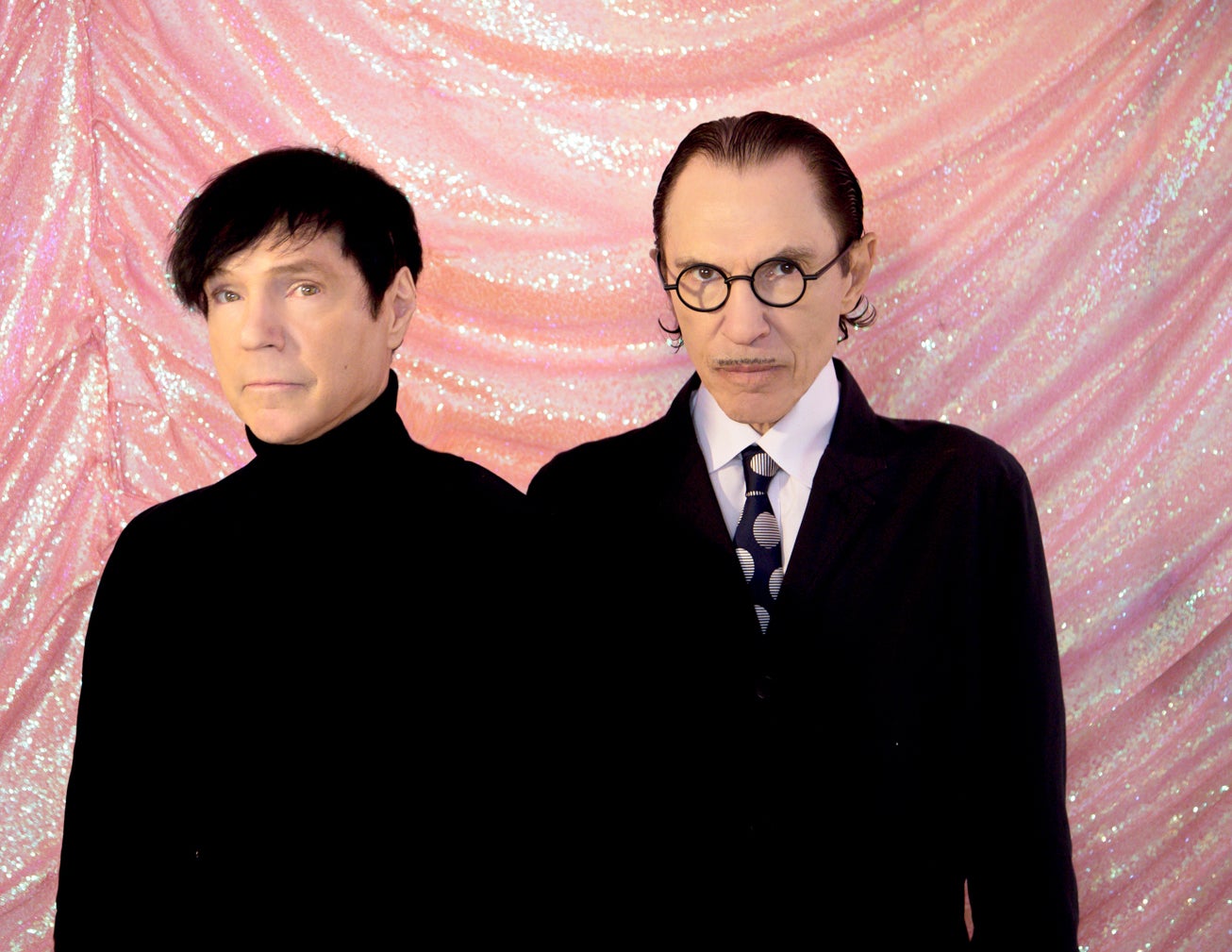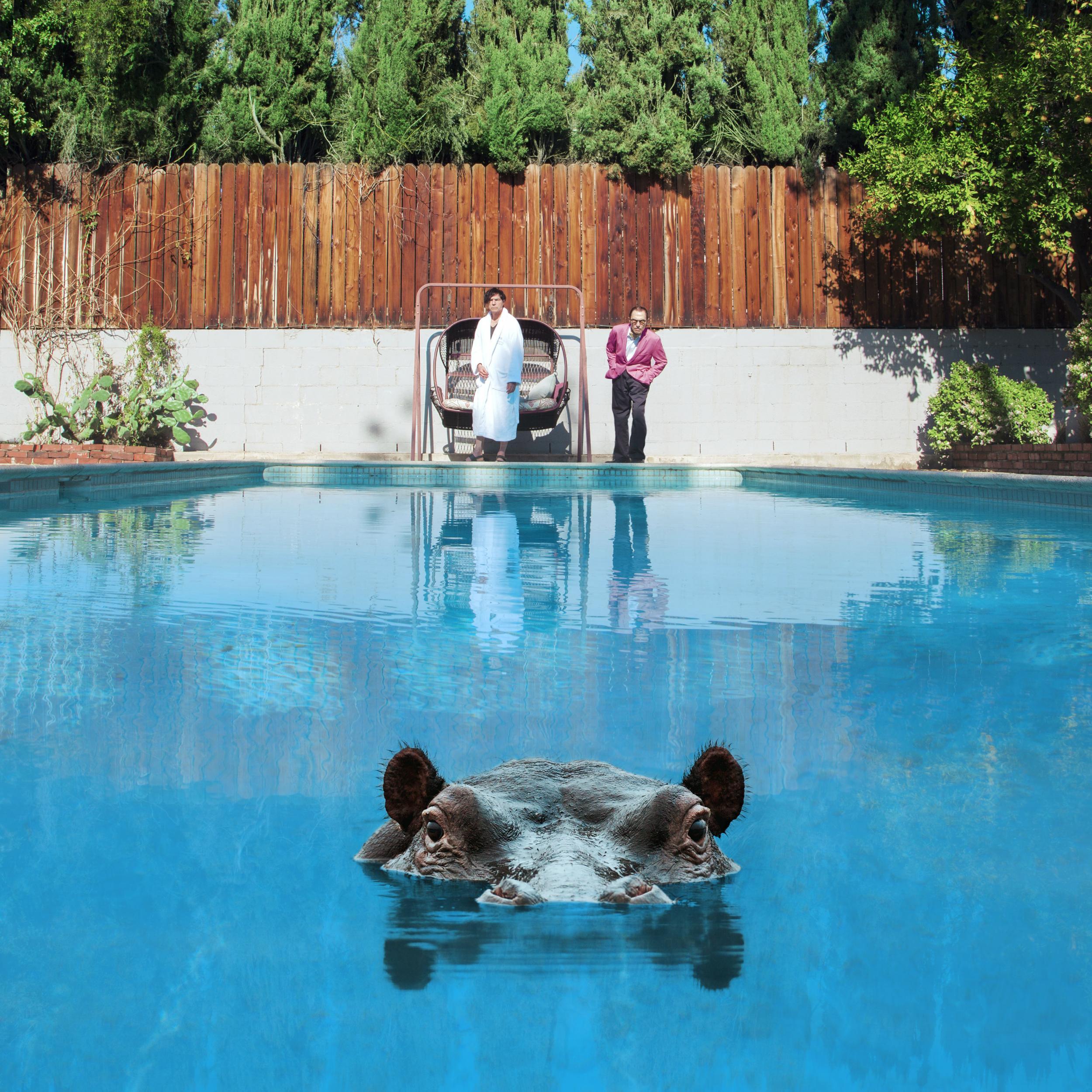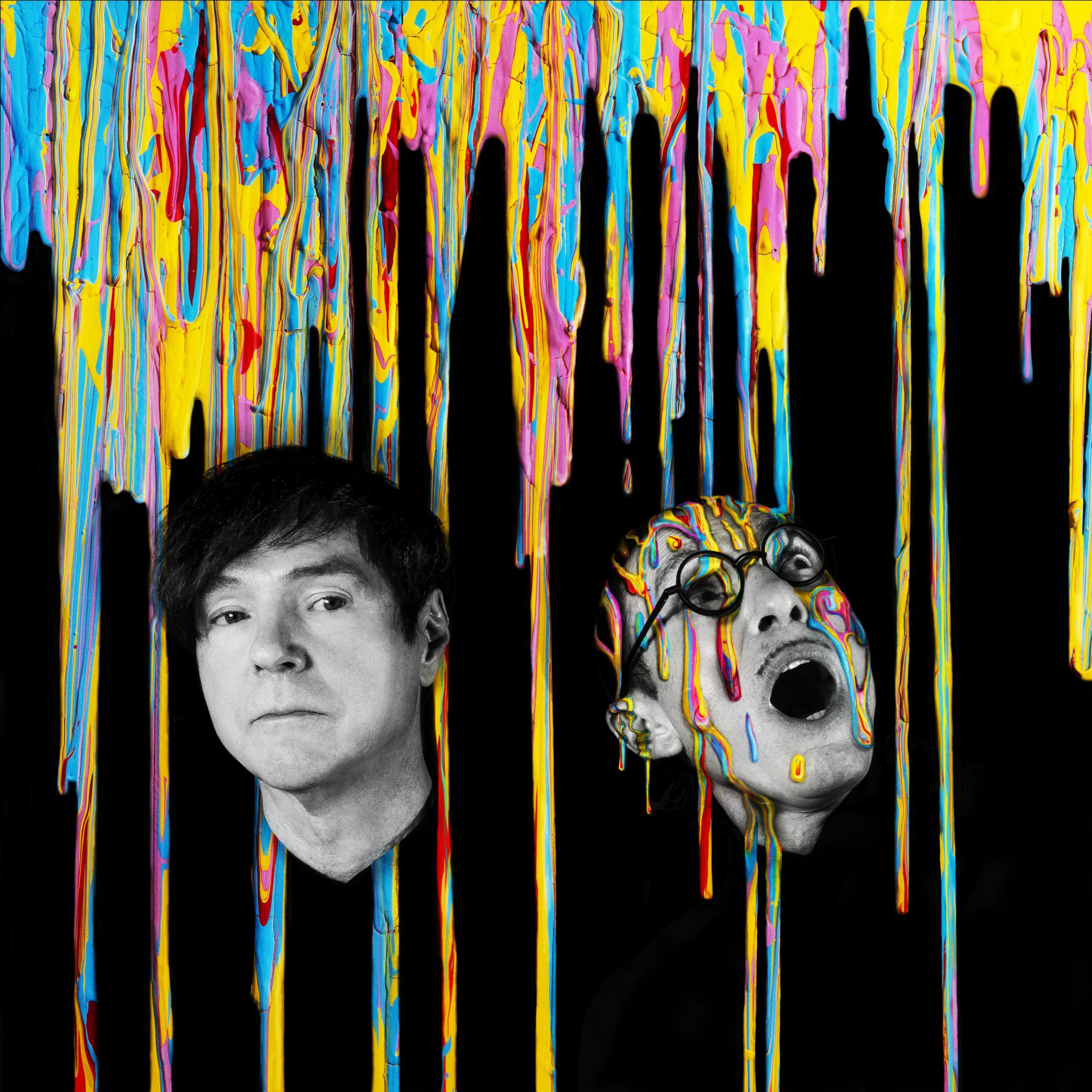Stop making sense: Sparks on their 50 years of gravity-defying synth-pop
Brothers Ron and Russell Mael are back with their 24th album and show no signs of slowing down. In fact, they want to make music that’s more ‘provocative and forward-thinking’ than ever, they tell Roisin O'Connor


Your support helps us to tell the story
From reproductive rights to climate change to Big Tech, The Independent is on the ground when the story is developing. Whether it's investigating the financials of Elon Musk's pro-Trump PAC or producing our latest documentary, 'The A Word', which shines a light on the American women fighting for reproductive rights, we know how important it is to parse out the facts from the messaging.
At such a critical moment in US history, we need reporters on the ground. Your donation allows us to keep sending journalists to speak to both sides of the story.
The Independent is trusted by Americans across the entire political spectrum. And unlike many other quality news outlets, we choose not to lock Americans out of our reporting and analysis with paywalls. We believe quality journalism should be available to everyone, paid for by those who can afford it.
Your support makes all the difference.Ron Mael is not enjoying lockdown. “I’m jealous of the people who claim it doesn’t affect them creatively,” the Sparks lyricist and keyboard player says. “I don’t have any of that going on. It’s stifling, anxiety-filled. I don’t see it as a means to be more of a creative at all… a path to suicide, maybe.” He utters a short bark of laughter to reassure me that he’s joking.
Ron’s disembodied voice is joined by that of his brother, Russell. The seasoned synth-pop duo prefer not to appear on video for our interview (they’re ruthlessly private about their personal lives, so perhaps they dislike the idea of me getting a glimpse inside their LA homes). Speaking with them is therefore like dining in the dark with a pair of eccentric but kindly uncles. New press photos show that Ron’s famous moustache, which used to draw frequent comparisons to Charlie Chaplin and, less endearingly, Adolf Hitler, is now longer and thinner, recalling Clark Gable’s debonair, pencilled style. Were it longer, sprouting in a single waxed whisker from each cheek, the 74-year-old would be the spit of Salvador Dali, with his slicked-back hair and wild, imperious stare.
A lifetime of misunderstanding about Sparks’ approach to music, meanwhile, has apparently made it difficult for them to accept praise. When I compare Ron’s lyricism to certain poems by Dylan Thomas, I can almost hear him blush: “You’re gonna make me have a swollen head,” he says bashfully. “I don’t get these kinds of compliments every day.”
Sparks have long been called one of the most underrated pop bands in recent memory – you’ll probably know one of their songs (“This Town Ain’t Big Enough For The Both Of Us”, maybe, or “Beat The Clock”) even though you might not know of them, and yet their influence is unparalleled. Almost half a century into their career and having just released their 24th album, they’re still a cult band who’ve constantly stayed way beyond, perhaps above, the curve. They formed in Los Angeles in the late Sixties but changed their name to Sparks and broke through in the early Seventies, baffling music writers with their European demeanour and lyrical wit, which was at odds with the rock’n’roll debauchery of the time. They had a commercial breakthrough with the glam rock-inflected Kimono My House (1974) but when they switched up their sound to synth-pop with the Giorgio Moroder-produced No 1 In Heaven in 1979, critics didn’t realise the band were offering a glimpse into the future.
Despite the generally unfavourable reaction from the music press, No 1 In Heaven was hugely influential for a generation of synth-pop bands, including Depeche Mode, New Order and The Human League, all of whom have gone on to wider acclaim than their heroes. New Order drummer Stephen Morris told journalist Simon Reynolds in the book Totally Wired: Post-Punk Interviews And Overviews that Sparks were an influence in their Joy Division days. “When we were doing ‘Love Will Tear Us Apart’, there were two records we were into: Frank Sinatra’s Greatest Hits and No 1 In Heaven by Sparks.”
In the intervening years, Sparks have experienced something of a late-career renaissance. They’ve toured with Faith No More, composed a radio musical and launched a supergroup with Franz Ferdinand called FFS in 2014. They followed this gathering momentum with the 2017 album Hippopotamus, which won five stars across the board and marked the first time Sparks had made the UK Top 10 since 1974.

Their latest record, A Steady Drip, Drip, Drip, is a lot like Hippopotamus and nothing like it at all. They’ve carried over Hippopotamus’s symphonic drama, but its follow-up has a manic energy and embraces a grander theatricalism. Perhaps Sparks too have had their attention splintered by technology: on the track “iPhone”, Ron rails against the device with the ominous refrain, “Put your f***ing iPhone down and listen to me.”
"There was a temptation to tread water, because Hippopotamus did surprisingly well for us,” Ron says of their approach to A Steady Drip, Drip, Drip. “We wanted to see if we could really push through the confines of ‘discreet’ songs.” Discreet, this album is not. It’s arguably one of their most comprehensive records, with outlandish electronic arrangements, power rock elements, and twangs of Spanish guitar. It’s a bombastic album that demands your explicit attention, and one into which the Mael brothers have distilled the sum of all their influences and multidisciplinary skill.
“Stylistically, we drew on things that we learned in the past, in all sorts of ways,” explains Ron, but not really explaining at all. “It’s eclectic in that sense – there isn’t a particular sonic concept behind it.” That said, the album’s centrepiece, “Stravinsky’s Only Hit”, references how an orchestral stab from the classical composer’s “Infernal Dance” became one of the most recognisable samples in pop music. The track has Russell performing his usual operatic feats against elaborate synth arrangements and bounding strings, which melt into the kind of baroque-influenced compositions beloved by their idol, The Who’s Pete Townsend. It’s bonkers, in the best kind of way. “We’re not arrogant enough to say it sounds like a Stravinsky piece,” says Ron, “but we wanted something complex in a modern classical way, to echo the idea of this fanciful tale of Stravinsky entering the pop world.”
Enjoy unlimited access to 100 million ad-free songs and podcasts with Amazon Music
Sign up now for a 4 month free trial (3 months for non-Prime members)
Enjoy unlimited access to 100 million ad-free songs and podcasts with Amazon Music
Sign up now for a 4 month free trial (3 months for non-Prime members)

The self-produced album was recorded at Russell’s home studio, with the pair riffing on their experience with renowned producers such as Tony Visconti and disco don Moroder. “The only danger is when you write a song, you become so protective of it that it’s important at this point that we can step back to see if it’s a loser or not,” Ron says. “In a sonic way, though, we really had confidence with what we were doing. It might not be to everyone’s taste but it’s what we intended.” There were, he says, “no restrictions”.
A recurring theme in Sparks’ music is the framing of relationships in unexpected settings. In the new song “Lawnmower”, one of the ultimate images of American suburbia is used to document a man being dumped by his girlfriend because he’s spending so much time “pushing on my lawnmower”. Take it literally or as a metaphor for a cruder act – one thing Sparks will never do is explain their lyrics. “As long as it elicits some kind of thought on the listener’s part, that’s good,” Russell says. “If no one’s paying attention to the lyrics it’s a different situation. Ron especially puts a lot of care and time into them, it’s not just wallpaper in the background. And a lot of pop music is just that, you don’t need to focus on the details because often… there aren’t that many!”
Russell has made a number of disparaging comments about contemporary pop music in the past and still struggles to find much that impresses him. “I’m constantly rooting for people to do something amazing, with a new angle,” he says. “Something that shocks you in the way the best music always has. There are exceptions, obviously, but you wish there was more that made you go, ‘God, I wish we’d come up with that!’ In a positive way.” Is there anyone current he does admire? “The Weeknd,” he decides, referring to the pop artist’s recent campaign for After Hours, which deployed Lynchian and Clockwork Orange-styled visuals in his music videos and TV appearances. “That whole campaign was fresh and off-kilter,” Russell says, “and it was striking how you didn’t always know what was going on – he placed himself in this whole new environment. I think that was really successful.”

The Weeknd may be omnipresent in pop culture thanks to locked-in fans sharing dance routines to his songs on TikTok, but Sparks continue to puncture the mainstream in unusual ways. Most Sparks fans have a story about the moment they discovered the band, which rarely involves hearing them on the radio. I found them on the Noughties TV series Gilmore Girls; the show’s writers, who were big Sparks fans, offered them a cameo after giving them a number of mentions via the main characters. “Being able to circumvent radio [is] always the goal for a band like ourselves, which is always a challenge,” says Ron, not that they’ve had much air time anyway. “Having a different entry point into the band is great. That’s a big part of the motivation of making new music, to make it provocative and forward-thinking, because people are still discovering Sparks now. We want each album to be as compelling as anything we’ve done in the past.”
Edgar Wright is one of those fans: he first saw Sparks on Top Of The Pops in 1979, and the moment ignited a lifelong love of the band. The Baby Driver director is now working out the release of a documentary about them, for which he followed them around the world, film crew in tow. Sparks had been approached in the past by directors hoping to make films about them but felt Wright was the one who best “matched our music sensibility and could convey our spirit in a film”. They’re also near completion on a musical film they wrote themselves, Annette, which stars Adam Driver as a stand-up comedian and Marion Cotillard as his wife, a world-famous soprano. Most of the world was only made aware of Driver’s singing ability thanks to his performance of Sondheim’s “Being Alive” in the film Marriage Story, but he was cast in Annette long before then.
“[Annette] is a really unique film, kind of an uncompromising musical,” Russell says. “We were so happy that Adam was so passionate about the material. It’s a role that he’s not been seen in before, I think.” They wanted to avoid the kind of polished vocal performance of a Broadway musical, and felt that Driver’s strange, raw delivery fitted perfectly. “It’s more naturalistic, in a sense more pop-orientated, and Adam totally understood that. It was astonishing to see him do everything – singing, acting, moving – on set.”
Hollywood might be the place in which Sparks find themselves now, but it’s the UK that has inspired and enamoured them since they first heard The Kinks as schoolboys. They became obsessed with Britain’s emerging rock scene, coveting the English idyll portrayed in those songs. “There’s a certain preciousness, in a positive sense, for those sorts of bands,” says Ron, “and that was different to what I felt was the faux sincerity of a lot of American bands at the time.”
They moved briefly from LA to live in London in the 1970s, their label keen to integrate them into the nascent glam-rock scene, and for a time they were finally able to be a “British band”, fulfilling their dreams of Waterloo sunsets. “I didn’t know what a village green was before we moved to London,” Ron says. “It was fantasy versus reality, but also everything we’d imagined it to be. In a way, it was an enhancement of what we were doing musically. We started off trying to emulate those bands, then we failed… then we became what we are.”
Sparks’ universe seems very small right now, crammed into the computer screen in front of me, but really it’s vast and undefinable. Where some artists might build one idea before burning it to the ground and starting over, Sparks just add more detail. They’re the mayors of an extraordinary and colourful world in which the least important thing is that they make sense. When they were on the hunt for a bass player in 1973, the ad they placed in Melody Maker read: “Must be beard-free and exciting.” Almost 50 years later and here they are, beard-free, and still one of the most exciting bands around.
A Steady Drip, Drip, Drip is out now
Join our commenting forum
Join thought-provoking conversations, follow other Independent readers and see their replies
Comments